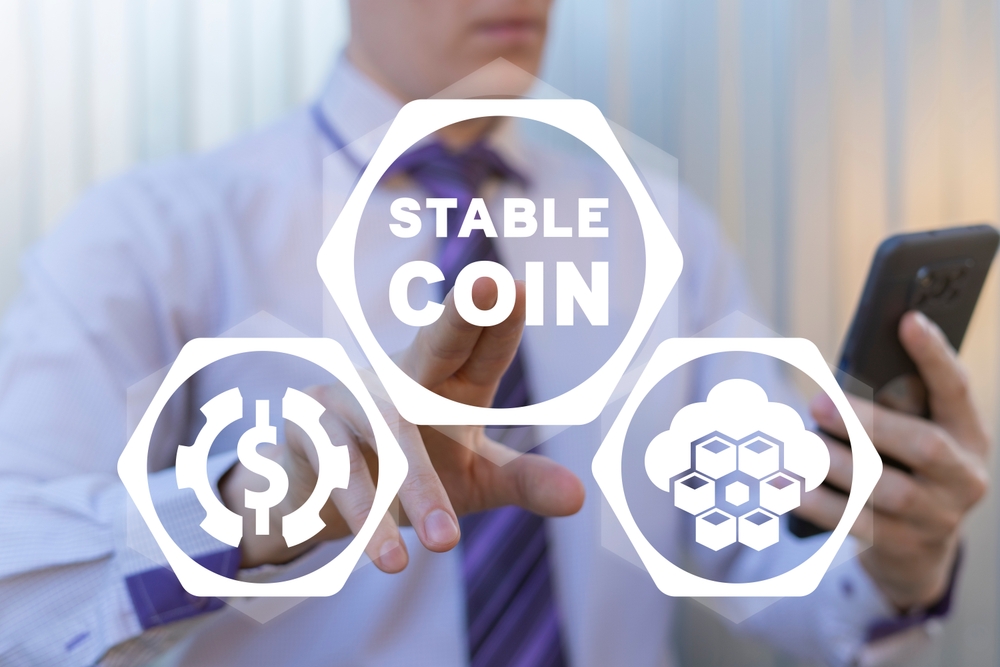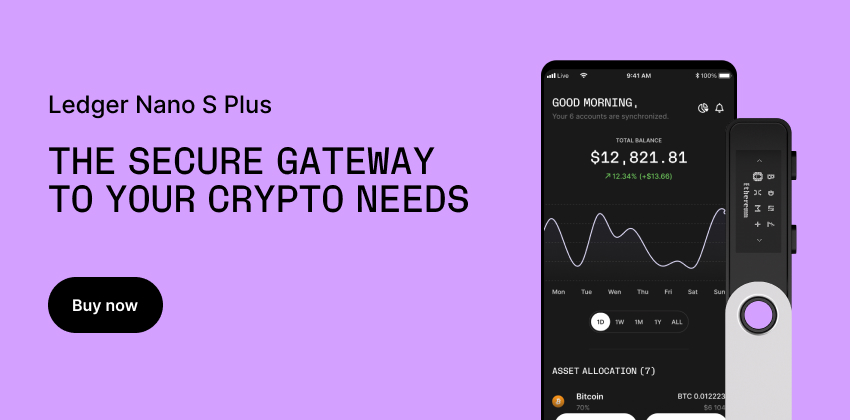Collaboration between SWIFT and ChainLink has the potential to revolutionize the financial industry by increasing efficiency and secure data sharing. As a global financial messaging service, SWIFT is crucial to the global economy, enabling banks to send and receive information about financial transactions in a secure manner. By integrating with ChainLink – a decentralized oracle network that bridges smart contracts with real-world data – SWIFT can further enhance its services and ensure seamless interoperability between various financial systems.
Through this collaboration, SWIFT can leverage ChainLink’s trusted data feeds to facilitate financial transactions by providing accurate, tamper-proof, and real-time information. Financial institutions can rely on this data to make more informed decisions, reduce errors, and automate processes using smart contracts, which are self-executing contracts with the terms between buyer and seller being directly written into lines of code. This would result in reduced operational costs and faster settlement times for banks.
Moreover, the integration of ChainLink’s oracles can enhance security measures for SWIFT transactions by enabling end-to-end encryption and decentralized data storage, thereby minimizing the risk of cyber-attacks and data breaches. Ultimately, the collaboration between SWIFT and ChainLink signifies a promising step forward in the evolution of global financial infrastructure, opening new possibilities for innovation and streamlined financial solutions.
Table of Contents
ToggleOverview of SWIFT and ChainLink
SWIFT: Global Financial Messaging Network
The Society for Worldwide Interbank Financial Telecommunication (SWIFT) is an international organization that provides a secure global financial messaging network. Established in 1973, SWIFT connects over 11,000 financial institutions in more than 200 countries, allowing them to efficiently exchange financial messages and transaction information.
The primary objective of SWIFT is to ensure the security and reliability of its messaging network, providing services such as payment and settlement, securities transactions, and risk management. To achieve this, SWIFT uses highly reliable messaging standards, including the ISO 20022 standard.
Some key features of SWIFT include:
Secure messaging: SWIFT employs multiple security layers and mechanisms to prevent unauthorized access to the network, reducing fraud and cyber threats.
Standardized message formats: SWIFT messages use a standardized format, making it easier for institutions to consistently interpret and process transaction information.
Reliability: With a robust infrastructure and multiple redundancies, the SWIFT network ensures uninterrupted service with a message delivery rate higher than 99.999% and an average message delivery time of seconds.
ChainLink: Decentralized Oracle Network
ChainLink is a decentralized oracle network that aims to bridge the gap between smart contracts and real-world data. Launched in 2017, ChainLink allows smart contracts on various blockchain platforms (e.g., Ethereum, Binance Smart Chain, Polkadot) to securely access external data feeds, web APIs, and traditional banking systems.
The key feature of ChainLink is the use of Oracle nodes, which serve as intermediaries between the blockchain and off-chain data sources. These nodes retrieve, validate, and transmit real-world data to the smart contracts, enabling them to function seamlessly in different scenarios.
Some key characteristics of ChainLink include:
Decentralization: Unlike traditional Oracle systems, ChainLink is decentralized, reducing the risk of a single point of failure and enhancing the overall security of the network.
Data aggregation: ChainLink oracle nodes aggregate data from multiple sources, ensuring greater accuracy and reliability in the data provided to the smart contracts.
Crypto-economic incentives: ChainLink utilizes the LINK token as an incentive mechanism to maintain the integrity of the network. Oracle operators are rewarded with LINK tokens for correct and timely data provision, while those providing incorrect or tampered data are penalized.
Together, SWIFT and ChainLink offer innovative solutions for secure financial messaging and decentralized oracle networks, respectively. With their collaborative efforts, the two systems are contributing to the modernization of the financial services industry, facilitating increased efficiency, security, and technological advancement.
Collaboration Between SWIFT and ChainLink
Smart Contract Integration
SWIFT, a global provider of secure financial messaging services, has realized the potential benefits of blockchain technology and partnered with ChainLink, a decentralized oracle network that connects smart contracts to real-world data. This collaboration aims to integrate SWIFT’s messaging infrastructure with ChainLink’s Oracle network to enable the secure and efficient execution of smart contracts in financial transactions.
By bridging the gap between the traditional financial system and blockchain-based smart contracts, this collaboration can streamline various processes such as cross-border payments, trade finance, and settlement. Financial institutions can leverage smart contract integration to automate workflows, reducing the need for manual intervention and the likelihood of errors, thus improving overall efficiency.
Enhanced Security and Data Privacy
As a trusted provider of financial messaging services, SWIFT has a strong track record of ensuring data security and privacy. By collaborating with ChainLink, SWIFT can extend its security framework to smart contracts, enabling the secure transmission of sensitive data and ensuring end-to-end encryption.
ChainLink’s decentralized oracle network also contributes to enhanced security by eliminating single points of failure. Oracles are third-party services that transmit data between smart contracts and external data sources. ChainLink’s approach to decentralization ensures that multiple oracles verify the data, mitigating the risk of tampering or manipulation.
Scalability and Efficiency
One of the key challenges in the blockchain industry is scalability, especially when it comes to financial transactions. The collaboration between SWIFT and ChainLink addresses this challenge by leveraging SWIFT’s existing high-capacity infrastructure, which has been designed to process millions of transactions daily.
Furthermore, ChainLink’s Oracle network can efficiently handle complex data requests and transactions by splitting tasks into multiple sub-tasks and processing them concurrently. This approach allows for faster data processing, which ultimately leads to improved efficiency and reduced transaction times.
The partnership between SWIFT and ChainLink sets a strong foundation for the future development of blockchain technology in the financial sector. By integrating smart contracts, enhancing security and data privacy, and addressing scalability challenges, this collaboration has the potential to revolutionize various aspects of global finance.
Use Cases and Benefits of Collaboration
Cross-Border Payments
Collaboration between SWIFT and ChainLink could bring significant improvements to cross-border payment systems. SWIFT is a global messaging network that enables financial institutions to send and receive information about financial transactions in a secure and standardized way. It connects over 11,000 institutions in more than 200 countries, facilitating the majority of international interbank messages for payment orders, securities trades, and treasury transactions. ChainLink, on the other hand, is a decentralized oracle network that provides reliable data feeds to smart contracts, helping bridge the gap between blockchain technology and real-world applications.
By integrating ChainLink’s decentralized oracle technology with SWIFT’s messaging system, it is possible to enhance the speed, accuracy, and security of international payments. Data from off-chain sources (e.g., exchange rates, interest rates) can be securely fed into smart contracts and executed automatically, reducing manual intervention and errors. This collaboration has the potential to streamline payment processing and settlement times, lower operational costs, and introduce innovative payment products and services.
Financial Data Exchange and Interoperability
Another use case for the collaboration between SWIFT and ChainLink lies in the exchange of financial data and enhanced interoperability between various financial systems. As mentioned earlier, SWIFT connects a vast number of financial institutions across borders and works as a messaging platform for them. ChainLink’s decentralized oracle network can help by providing data feeds from various sources in a tamper-resistant and decentralized manner.
Multiple blockchains, each with its own transaction structure and programming languages, make it difficult to establish communication between them. ChainLink can help bridging these differences by providing a network of oracles that adapt the data from traditional financial systems to blockchain-based platforms. This would allow for seamless integration and improved collaboration between various platforms, paving the way for increased innovation and financial inclusion.
Improved Compliance and Transparency
Collaboration between SWIFT and ChainLink can also lead to improved compliance and transparency within the financial industry. SWIFT has been working towards implementing stronger measures to combat financial crimes such as money laundering and terrorist financing, while ChainLink can provide extra layers of security and transparency by leveraging its decentralized Oracle network.
The integration of ChainLink’s decentralized oracles with SWIFT’s infrastructure would enhance the exchange of real-time data, which is essential for maintaining compliance with regulations such as Anti-Money Laundering (AML) and Know Your Customer (KYC). Real-time data access and exchange, combined with the trustless and verifiable nature of blockchain technology, could help financial institutions adhere to regulatory obligations more effectively while also enhancing transparency for all stakeholders, including regulators and customers.
In conclusion, the collaboration between SWIFT and ChainLink offers promising use cases and benefits in cross-border payments, financial data exchange and interoperability, and improved compliance and transparency. The integration of SWIFT’s messaging system with ChainLink’s decentralized oracle network would not only streamline payment processing but also pave the way for better collaboration between various financial platforms and increased transparency within the industry.
Challenges and Potential Solutions
Data Privacy and Security Concerns
When it comes to collaboration between SWIFT and ChainLink, data privacy and security are of utmost importance. SWIFT is a global messaging network that facilitates interbank transactions, while ChainLink is a decentralized oracle network that provides real-world data to smart contracts. Combining both technologies might raise concerns about the potential mishandling of sensitive financial data. To overcome this challenge, both parties can work on implementing robust security measures and privacy-preserving techniques such as zero-knowledge proofs and secure multi-party computation.
Technical Implementation Hurdles
Integrating SWIFT and ChainLink may face technical implementation hurdles, such as potential incompatibilities between SWIFT’s traditional messaging protocols and ChainLink’s decentralized Oracle network. Addressing these challenges might require the development of middleware applications or custom APIs to facilitate seamless communication between the two networks. Additionally, devising innovative ways to handle asset transfers between different types of blockchain networks will be essential for a successful collaboration.
Regulatory Landscape
The regulatory landscape surrounding the collaboration between SWIFT and ChainLink is another challenge that should be considered. As financial institutions are subject to strict compliance requirements, integrating a decentralized oracle network like ChainLink into SWIFT’s services could raise regulatory concerns. To overcome this, both parties must closely follow the developments in the regulatory landscape and work together to ensure compliance with local and international regulations.
In conclusion, while challenges exist in integrating SWIFT and ChainLink, potential solutions can address data privacy and security concerns, technical implementation hurdles, and the regulatory landscape. By focusing on these areas, the collaboration between these two organizations can pave the way for innovation in the financial sector.
Future Outlook and Implications
Impact on Financial Ecosystem
The collaboration between SWIFT and ChainLink has the potential to significantly transform the financial ecosystem. By integrating SWIFT’s global messaging system with ChainLink’s decentralized Oracle network, financial institutions can benefit from greater automation, transparency, and security.
SWIFT (Society for Worldwide Interbank Financial Telecommunications) is a global messaging system that facilitates secure and reliable communication among financial institutions. By partnering with ChainLink, a decentralized oracle network that securely connects smart contracts to external data sources, together they can potentially revolutionize the way financial transactions are processed.
Automated processes, such as settlements and validations, would be performed more efficiently, reducing both time and costs. Furthermore, integrating smart contracts into the SWIFT messaging system allows for the enforcement of predefined conditions, leading to fewer disputes and a more streamlined transaction process. Overall, this collaboration can enhance trust in the financial ecosystem.
Potential for Broader Adoption
The successful integration of SWIFT’s messaging system with ChainLink’s decentralized oracle network can pave the way for the broader adoption of blockchain technology in the financial sector and beyond. This has the potential to:
Increase transparency: Decentralized ledgers are public, allowing all parties involved in a transaction to access and verify the data. This transparency strengthens the trust between parties and mitigates the risks of fraud and manipulation.
Enhance security: Blockchain technology relies on strong cryptography, making it difficult to hack or tamper with. Coupled with ChainLink’s secure Oracle network, financial institutions can ensure the protection of sensitive data and reduce the risks of security breaches.
Lower operational costs: Automated processes enabled by smart contracts would help to minimize manual interventions, ultimately reducing operational costs for financial institutions.
Encourage innovation: The collaboration between SWIFT and ChainLink could act as a catalyst for innovation in the financial industry. By leveraging the capabilities of smart contracts and decentralized oracles, businesses have the opportunity to develop new financial products and services, ultimately benefitting consumers.
In conclusion, the collaboration between SWIFT and ChainLink has promising implications for the future of the financial ecosystem. By combining the strengths of both organizations, greater transparency, security, and automation can be achieved, offering benefits for industry players and encouraging broader adoption of blockchain technology.
Frequently Asked Questions
What is the purpose of the SWIFT-Chainlink collaboration?
The SWIFT-Chainlink collaboration aims to explore how distributed ledger technology (DLT) and smart contracts can improve financial services and transactions. By utilizing Chainlink’s decentralized oracle network, the partnership brings together traditional financial institutions and blockchain-based systems, innovating new possibilities for global payments and banking.
How does Chainlink facilitate cross-chain communication for SWIFT?
Chainlink enables cross-chain communication for SWIFT by acting as a bridge between off-chain data sources and on-chain smart contracts. Chainlink’s decentralized oracle network securely and reliably gathers real-world data, such as exchange rates and financial news, and delivers it to smart contracts on the blockchain. This ensures SWIFT transactions can incorporate up-to-date and accurate information when executing cross-border payments.
What benefits does the collaboration bring to financial institutions?
The collaboration between SWIFT and Chainlink offers numerous benefits to financial institutions, such as enhanced security, increased transparency, and lower costs. The integration of smart contracts into the SWIFT infrastructure allows for the automation of complex financial transactions, reducing manual intervention and risk. Additionally, Chainlink’s decentralized oracles provide trustworthy and accurate data, increasing the overall efficiency and reliability of global financial operations.
Are there any projects involving SWIFT and Chainlink’s CCIP?
While specific projects involving SWIFT and Chainlink’s Cross-Chain Interoperability Protocol (CCIP) have not been disclosed yet, the collaboration focuses on leveraging Chainlink’s technology to enhance the SWIFT global payment system. This could potentially lead to innovative developments in financial services, such as new use cases for smart contracts and tokenized assets.
How does Chainlink’s price data service apply to SWIFT transactions?
Chainlink’s price data service can benefit SWIFT transactions by providing accurate and reliable exchange rates for currency conversions in international payments. The decentralized oracles used by Chainlink gather information from numerous sources and aggregate this data, presenting an up-to-date and reliable exchange rate for smart contracts and other financial services within the SWIFT network.
What role does ISO 20022 play in the SWIFT-Chainlink partnership?
ISO 20022 is a universal financial messaging standard that improves interoperability and communication between different financial systems. In the SWIFT-Chainlink partnership, ISO 20022 serves as a common language for transmitting payment messages between the traditional financial system and blockchain-based platforms. This ensures seamless data exchange and smooth integration of smart contracts within the SWIFT infrastructure, enhancing the overall efficiency and security of cross-border payments.












